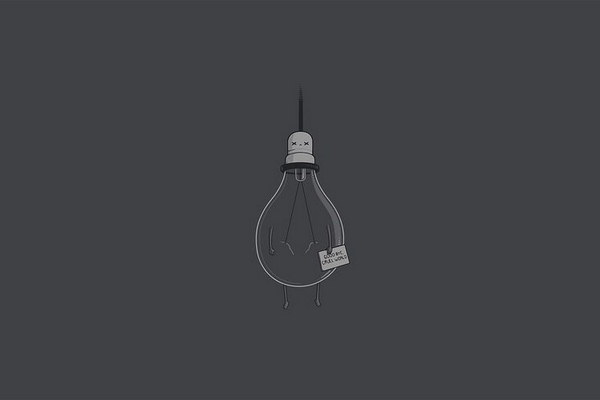Уильям Шекспир - Монолог Гамлета
Существовать иль нет? – вопрос таков.
Достойней ли в сознании сносить
Пращи и стрелы яростного рока
Или сразиться с океаном бедствий,
Со всем покончить, умереть, уснуть –
Не более того: во сне – конец;
Разбить вериги впившиеся в тело.
Из всех известных благ, в конечном счёте,
Желать пристало только сна и смерти;
Но смерть - почти что сон, и вот препона:
Какие грёзы в смертном сне придут?
Отбрасывая тлен и суету,
Мы робко медлим – такова причина
Того, что длится горестная жизнь.
Кто вытерпел бы времени издёвки,
Неправду и униженную гордость,
Любовные терзанья, беззаконья,
Пренебреженье долгом и заслугой,
И нагло разгулявшуюся чернь,
Когда бы мог добыть себе покой
Одним ударом лезвия? Кто стал бы
В поту хрипеть под гнётом скучной жизни?
Однако неизвестность нам страшнее:
Ведь путник ни один не возвратился
Из неоткрытых смертных стран; к чему же
Привычные напасти и болезни
Менять на незнакомые доселе?
Такие думы в нас вселяют робость,
Так наша полнокровная решимость
Слабеет перед бледным размышленьем
И вековые славные порывы
Уходят вспять, не став делами. – Ах!
Офелия, прекраснейшая нимфа,
В молитвах помяни мои грехи.
***
To be, or not to be- that is the question:
Whether 'tis nobler in the mind to suffer 1750
The slings and arrows of outrageous fortune
Or to take arms against a sea of troubles,
And by opposing end them. To die- to sleep-
No more; and by a sleep to say we end
The heartache, and the thousand natural shocks 1755
That flesh is heir to. 'Tis a consummation
Devoutly to be wish'd. To die- to sleep.
To sleep- perchance to dream: ay, there's the rub!
For in that sleep of death what dreams may come
When we have shuffled off this mortal coil, 1760
Must give us pause. There's the respect
That makes calamity of so long life.
For who would bear the whips and scorns of time,
Th' oppressor's wrong, the proud man's contumely,
The pangs of despis'd love, the law's delay, 1765
The insolence of office, and the spurns
That patient merit of th' unworthy takes,
When he himself might his quietus make
With a bare bodkin? Who would these fardels bear,
To grunt and sweat under a weary life, 1770
But that the dread of something after death-
The undiscover'd country, from whose bourn
No traveller returns- puzzles the will,
And makes us rather bear those ills we have
Than fly to others that we know not of? 1775
Thus conscience does make cowards of us all,
And thus the native hue of resolution
Is sicklied o'er with the pale cast of thought,
And enterprises of great pith and moment
With this regard their currents turn awry 1780
And lose the name of action.- Soft you now!
The fair Ophelia!- Nymph, in thy orisons
Be all my sins rememb'red.
Достойней ли в сознании сносить
Пращи и стрелы яростного рока
Или сразиться с океаном бедствий,
Со всем покончить, умереть, уснуть –
Не более того: во сне – конец;
Разбить вериги впившиеся в тело.
Из всех известных благ, в конечном счёте,
Желать пристало только сна и смерти;
Но смерть - почти что сон, и вот препона:
Какие грёзы в смертном сне придут?
Отбрасывая тлен и суету,
Мы робко медлим – такова причина
Того, что длится горестная жизнь.
Кто вытерпел бы времени издёвки,
Неправду и униженную гордость,
Любовные терзанья, беззаконья,
Пренебреженье долгом и заслугой,
И нагло разгулявшуюся чернь,
Когда бы мог добыть себе покой
Одним ударом лезвия? Кто стал бы
В поту хрипеть под гнётом скучной жизни?
Однако неизвестность нам страшнее:
Ведь путник ни один не возвратился
Из неоткрытых смертных стран; к чему же
Привычные напасти и болезни
Менять на незнакомые доселе?
Такие думы в нас вселяют робость,
Так наша полнокровная решимость
Слабеет перед бледным размышленьем
И вековые славные порывы
Уходят вспять, не став делами. – Ах!
Офелия, прекраснейшая нимфа,
В молитвах помяни мои грехи.
***
To be, or not to be- that is the question:
Whether 'tis nobler in the mind to suffer 1750
The slings and arrows of outrageous fortune
Or to take arms against a sea of troubles,
And by opposing end them. To die- to sleep-
No more; and by a sleep to say we end
The heartache, and the thousand natural shocks 1755
That flesh is heir to. 'Tis a consummation
Devoutly to be wish'd. To die- to sleep.
To sleep- perchance to dream: ay, there's the rub!
For in that sleep of death what dreams may come
When we have shuffled off this mortal coil, 1760
Must give us pause. There's the respect
That makes calamity of so long life.
For who would bear the whips and scorns of time,
Th' oppressor's wrong, the proud man's contumely,
The pangs of despis'd love, the law's delay, 1765
The insolence of office, and the spurns
That patient merit of th' unworthy takes,
When he himself might his quietus make
With a bare bodkin? Who would these fardels bear,
To grunt and sweat under a weary life, 1770
But that the dread of something after death-
The undiscover'd country, from whose bourn
No traveller returns- puzzles the will,
And makes us rather bear those ills we have
Than fly to others that we know not of? 1775
Thus conscience does make cowards of us all,
And thus the native hue of resolution
Is sicklied o'er with the pale cast of thought,
And enterprises of great pith and moment
With this regard their currents turn awry 1780
And lose the name of action.- Soft you now!
The fair Ophelia!- Nymph, in thy orisons
Be all my sins rememb'red.
Метки:









